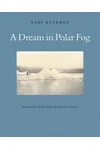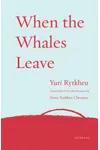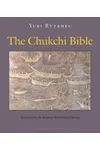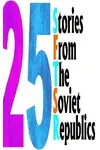Picture a Siberian storyteller who spun tales of icy tundras and resilient spirits—meet Yuri Rytkheu! Born in the remote Chukotka region, Rytkheu became the literary voice of the Chukchi people, weaving their myths, struggles, and beauty into novels and stories. His award-winning work, like A Dream in Polar Fog, captures a vanishing culture with heart and grit, making him a global treasure.
With a pen dipped in Arctic wisdom, Rytkheu blended adventure, folklore, and sharp critiques of modernization’s toll on indigenous life. Ready to dive into his world? Let’s explore the life and legacy of this Chukchi trailblazer!
The Making of Yuri Rytkheu
Yuri Rytkheu was born on March 8, 1930, in Uelen, a coastal village in Russia’s Chukotka Peninsula, where the Bering Sea meets the Arctic’s edge. Raised in a hunter’s family, with a shaman grandfather, he grew up immersed in Chukchi traditions. His name, meaning 'unknown' in Chukchi, became his surname due to Soviet naming rules. After a seven-year school in Uelen, Rytkheu dreamed of higher education but faced barriers. Undeterred, he worked as a sailor, hunter, and loader, eventually reaching Leningrad to study literature from 1949 to 1954. There, his stories caught fire, launching him as a literary star.
Yuri Rytkheu’s Unforgettable Stories
Rytkheu’s works pulse with the Chukchi’s deep connection to nature and their clash with modernity. His 1970 novel, A Dream in Polar Fog, is a gripping adventure about a Canadian sailor stranded among the Chukchi. Translated into English in 2005, it earned a Kiriyama Pacific Rim Prize Notable Book nod for its vivid prose and cultural depth. The Chukchi Bible (2009) blends myth and history, chronicling his grandfather’s life as Uelen’s last shaman. When the Whales Leave (2019) weaves a creation myth with a poignant ecological warning, showcasing his lyrical style.
Writing in Russian and Chukchi, Rytkheu fused oral traditions with Russian literary flair. His stories, rich with tundra landscapes and shamanic rituals, avoid sentimentality, offering nuanced portraits of Chukchi life—both noble and flawed. Critics praise his ethnographic detail and ability to bridge cultures, making his works resonate from Japan to Germany.
Why Yuri Rytkheu Matters
Rytkheu didn’t just write stories; he preserved a culture on the brink. As the 'father of Chukchi literature,' he gave voice to a shrinking community, shining a light on their resilience and wisdom. His critiques of Soviet and Western influences exposed the silent erosion of indigenous ways, earning him environmental and cultural acclaim. His translations of Pushkin and Tolstoy into Chukchi also bridged worlds, enriching both.
Though Rytkheu passed in 2008, his legacy endures in readers who discover the Chukchi’s spirit through his words. His books remain a testament to storytelling’s power to save what might be lost.
- Born: March 8, 1930, Uelen, Chukotka
- Key Works: A Dream in Polar Fog, The Chukchi Bible, When the Whales Leave
- Awards: Kiriyama Pacific Rim Prize Notable Book (2006)
- Died: May 2008, St. Petersburg, Russia
Snag A Dream in Polar Fog and dive into Yuri Rytkheu’s breathtaking Arctic tales! Let his stories sweep you to the Chukchi’s windswept shores.



